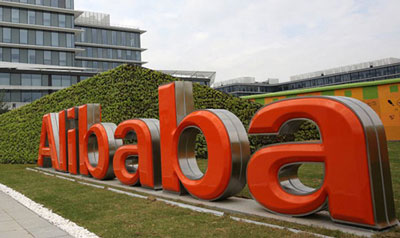Unfold Parts of Ecosystems Existing in Alibaba’s Global Headquarters (by Uptin Saiidi, excerpted from CNBC)

HANGZHOU, China — Chinese tech giant Alibaba’s global headquarters in Hangzhou is more than an office or corporate campus. It’s an incubator for all things tech, testing everything from self-driving cars to automated hotels.
One hour away by train from Shanghai, Alibaba boasts six campuses around Hangzhou. It also has other offices across China, and globally, including Silicon Valley.
Alibaba’s main Hangzhou headquarters — Xixi campus, which is home to about 22,000 of its 100,000 global employees. Its main campus is also where its corporate office, as well as its major e-commerce brands Tmall, Taobao, and AliExpress, are at.
Alibaba was started as an e-commerce platform 20 years ago by Jack Ma, who recently stepped down as the company’s chairman. Today, it has more than 30 business units that span from fintech platforms like AliPay, to its film division, Alibaba Pictures.
Five things at Alibaba’s campus
Various technologies are being tested across Alibaba’s campus. Here’s five things noticeable:
Facial recognition security access: staff can enter the campus simply through a scan of their faces. Although Alibaba said it’s optional, many employees using it seamlessly to enter the grounds.
Seamless, auto-payment for food: cameras inside the campus cafeteria automatically detect what dishes are selected from the buffet. The payment kiosks then add up the price of each dish, and employees can simply pay with their employee ID or mobile phones.
Autonomous vehicles: they’re seen zooming around campus making grocery deliveries. Last year, Alibaba announced it is developing self-driving technologies, joining its competitors Tencent and Baidu.
Retail tech: customers can scan barcodes at grocery stores to find out more about the products they’re eyeing. They can also virtually try on clothes — the store will simply scan their bodies — and see how it looks like without needing to step into a fitting room.
Alibaba’s hotel of the future, Flyzoo — which is adjacent to the campus — is testing out room deliveries using robots, automatic guest check-ins, and room door locks using facial recognition technology.
The campus is also home to the Alibaba museum, which features a history of the company’s growth. There is a massive wall showcasing drawings of different icons, meant to recognize game changers of the world, according to Alibaba.
The wall includes Google founders Sergey Brin and Larry Page, Apple founder Steve Jobs, Facebook founder Mark Zuckerberg, Berkshire Hathaway CEO and self-made billionaire, Warren Buffett, and as to be expected, Jack Ma.
recommend